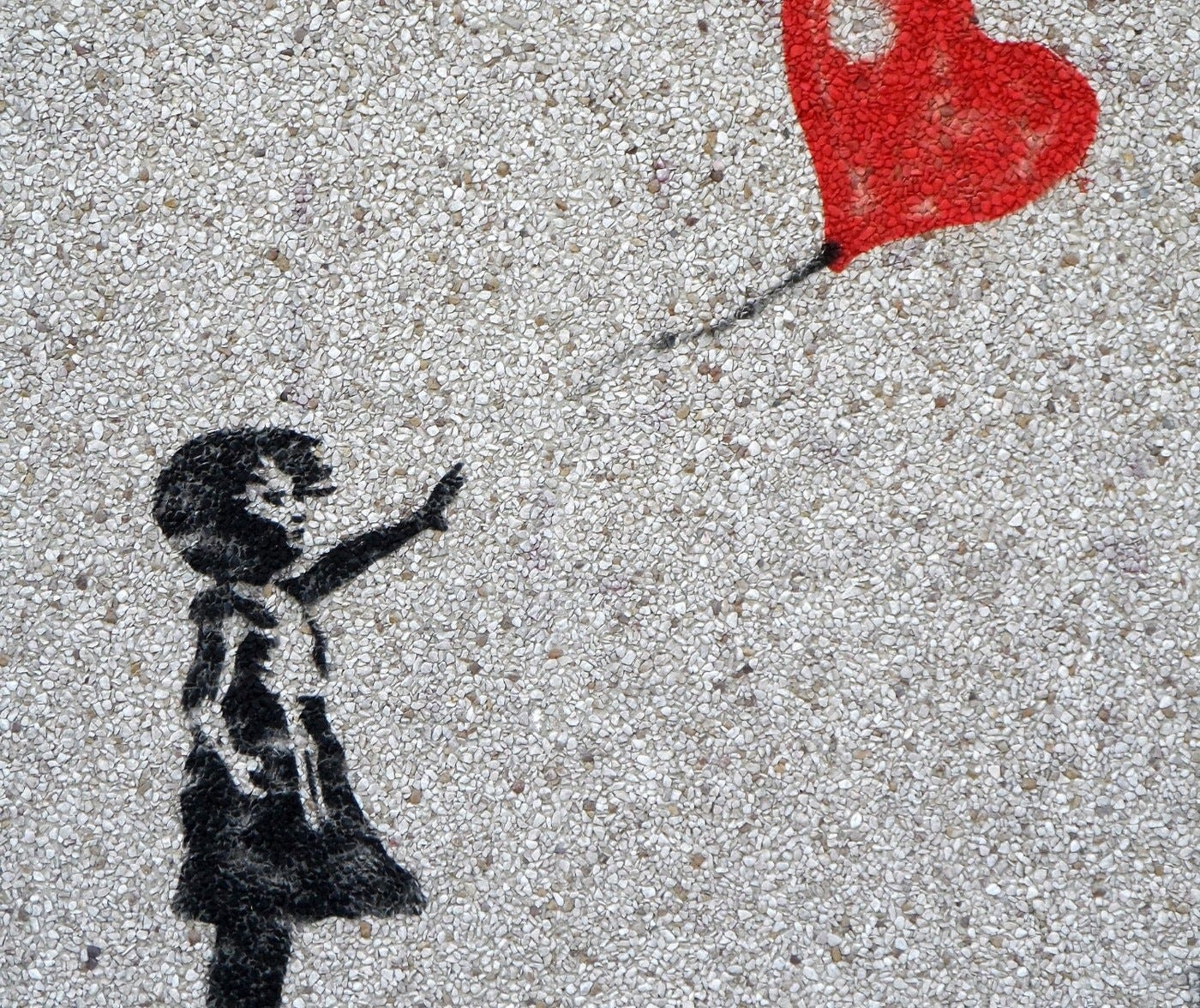Hello there,
I am taking a couple of weeks off over Christmas. I have not been super organised and scheduled two more newsletters for Christmas Day and New Year's Day. Why? Because I have put some work boundaries in place (yay!). I intend to have a rest, do festive things, eat lots of chocolate, and will be back next year.
This newsletter has a bit more in it, just in case you miss me : )
Why is leaving something behind such a hard thing to do?
When I left my career, as a Consultant Anaesthetist, I struggled with some unexpected emotions. They made my decision making more complicated.
The lead in time to my “leave” decision was long and considered. I gave myself time to process everything (about 3 years). I ensured that my decision aligned with my values. Then, one weekend, I summoned up my courage and “took the plunge.”
By “took the plunge,” I mean that I spent that weekend wavering over sending the resignation letter. I felt absolutely terrified of making, what I considered to be, the terminal move. In the end, I found the courage to do it. I put down a very heavy bag of emotional bricks and my life felt so much lighter.
The language of emotion is complex for many of us. We find it difficult to label exactly what we are feeling in the moment. We may know that the feeling is unpleasant, but not know exactly what the emotion is. If your emotional language is limited, then you may leap to the wrong conclusion and behave in ways you do not like.
Here are some of the emotions, which arise, from leaving something or someone behind:
Guilt
When you have been loyal to something or someone, for a lengthy period, leaving can make you feel guilty.
Guilt happens when you think you have done a bad thing. If you feel and recognise guilt, you can do something about it. You can learn from it, put plans into action, and move forwards.
Making the decision to leave a relationship or job is hard. You can still feel guilty about leaving, even when you know that moving on is the right thing to do.
The emotional response to someone else leaving can also make you feel guilty. Your brain will have many thoughts, that fuel your guilt.
What did I do wrong?
It must be because I did …
If I had done (this) then, it would not have happened…
Shame
This is one of the most toxic emotions you can feel. Left unchecked, it can do a lot of damage.
We often confuse guilt and shame, but they are not the same thing.
Shame is when you think you are a bad person. When you think you are bad, it is extremely hard to see a way forward. You might think that you are not worthy and do not deserve the opportunity to learn, grow and move forwards.
Shame also occurs when you worry about what other people think about you. If you hold the belief that failure is a sign of weakness. Any type of failure can make you think that you are weak, and you will worry about what others think of you.
Fear
Change can be scary, and it is very common to be fearful of the unknown. Sometimes change may be out of your control, and this can heighten your sense of fear.
Sometimes it feels overwhelming, and fear makes you want to run away, hide or fight. Any other emotions will have an additive effect and escalate your feelings of fear.
Anger
You may feel angry with other people
You may also feel angry with yourself
You may feel angry with the situation
Our brains process things quickly and can jump straight to concluding that you are angry. Before you know it your behavioural response for anger storms out and takes over.
Situations, old and new, can stir up many emotions, which you may perceive as anger.
The actual feeling you experienced may have been something entirely different. It could be humiliation, anxiety, regret, sadness, contempt, heartbreak or any number of other emotions.
Hint: The next time that you feel angry, try to work out what you are thinking. The thought might not be making you angry; it might be a different emotion. If you can label it, you will have a chance to put angry away and find the space for a better response.
Loss
Leaving is often associated with a feeling of loss.
Loss is the state of no longer having something or as much of something.
Everyone has experienced leaving and loss. Loss relates to the value we place on the “thing or person” that has gone. We frame our experience of loss in a very individual way which is particular to us. There is no right or wrong way to experience loss.
Some losses are obvious, and the world can see what we have lost. We choose to hide other losses and keep them private. They belong to us and no one else can see or experience them.
For example, divorce has many layers of loss; some are obvious and others less so. Here are some examples to consider:
Partner, house, money, friends, extended family, time with children, status, confidence, self-worth, self-compassion, sense of place, belonging and purpose.
Grief
This is a feeling of deep sorrow.
When we go through any form of loss, it is common to grieve for what has been lost. No one can tell you if your loss is worthy of grief. You do not need to compare your loss with that of anyone else. Know that your loss is valid, yours to feel, and yours alone.
I have focussed on only a few of the emotions you may be feeling right now. The important take aways are:
Leaving a relationship, job, or facing a change will make you feel a wide range of emotions at various times
It is hard to label emotions and work out where they come from. It is a skill and with practice, it gets easier to do.
Try to allow yourself the space:
To recognise the uncomfortable feeling,
Try to work out what the emotion is, what thought generated it, how would you like to respond.
This is key to taking back your power, setting your own boundaries, and finding your way through complex decisions.
Leaving could be the first step on your journey to the amazing possibilities which lie ahead. You will be pleased to read that it is not all bad. There are many positive emotions associated with leaving too.
(I first published a version of this post on my website blog in March 2022.)
Something else to read...
"The investment industry is just a wall of men’: Tessa Clarke of Olio on the battle facing female entrepreneurs."
Sarah Butler
“In the UK, less than 2% of equity investment goes to high-growth companies with female founders, according to analysis by Beauhurst, with 85% going to those founded by men and the rest to mixed teams. That’s no surprise given that the vast majority of the capital in Europe is deployed by men.”
Prefer audio? Then check this out...
"How to own your own power"
Carla Harris - Take the lead
This is a brilliant watch. If you want to be seen, you need to burn your invisibility cloak. Here is a great video to help you fan the flames.
Coaching Prompt
"What are you afraid of?"
Take some time to really take stock of what frightens you most about change. Then you can take steps to address your fears.
3 songs long
I chose 3 songs for the playlist because it lasts for 10 minutes (ish). That 10 minutes is the perfect length of time for you to either listen, relax, do an exercise snack, walk round the block, or do anything you fancy to music (go wild with your imagination). You can listen to my playlist or make one of your own.
I hope you all have a wonderful break over the next couple of weeks and try out one small thing just for you. It may be the best thing that you do.
That's it, have a restful festive break.
Love from,
Lucinda x
P.S.
What else?
Not sure about coaching? I have an online course that will help you to make, what might be, one of the best decisions you make for your self next year. It's called "Making decisions that feel good" and you can find it here.
Follow me on LinkedIn | Follow me on Instagram | Book a call with me | Follow me on Facebook | Website








Hope you have a good rest over the festive period. See you in 2024!